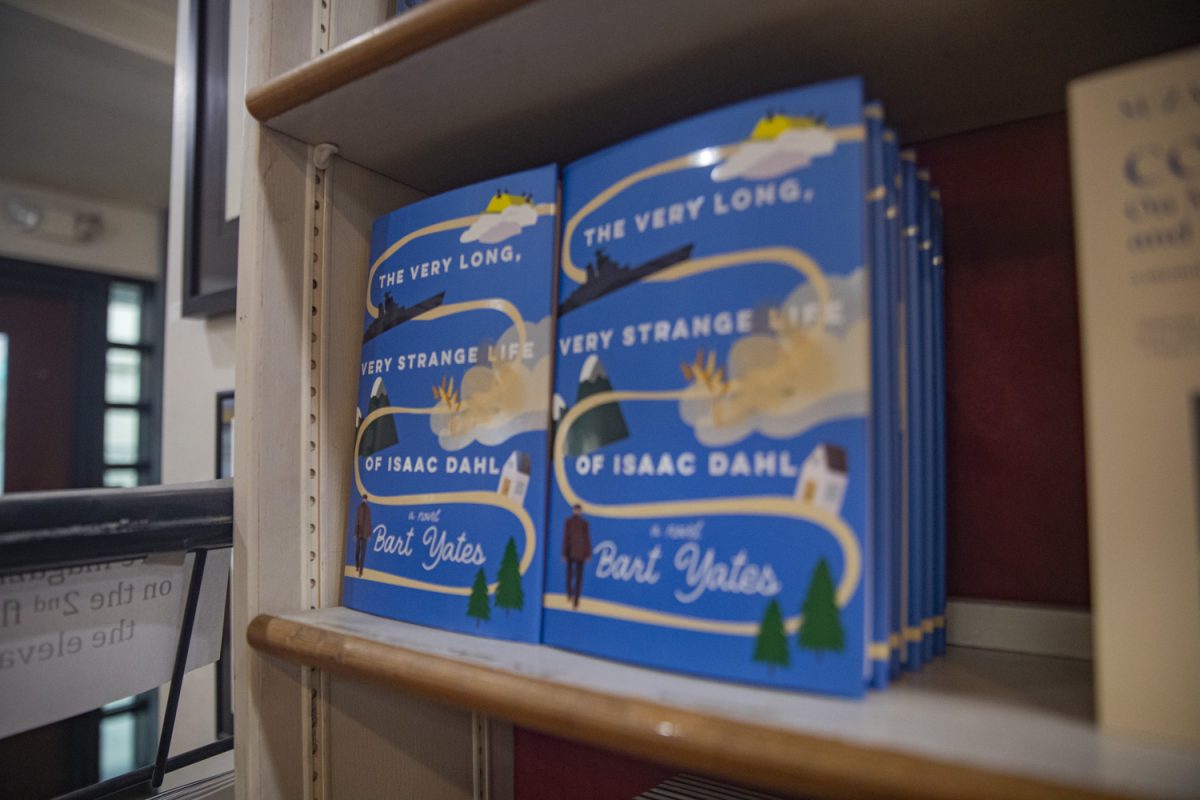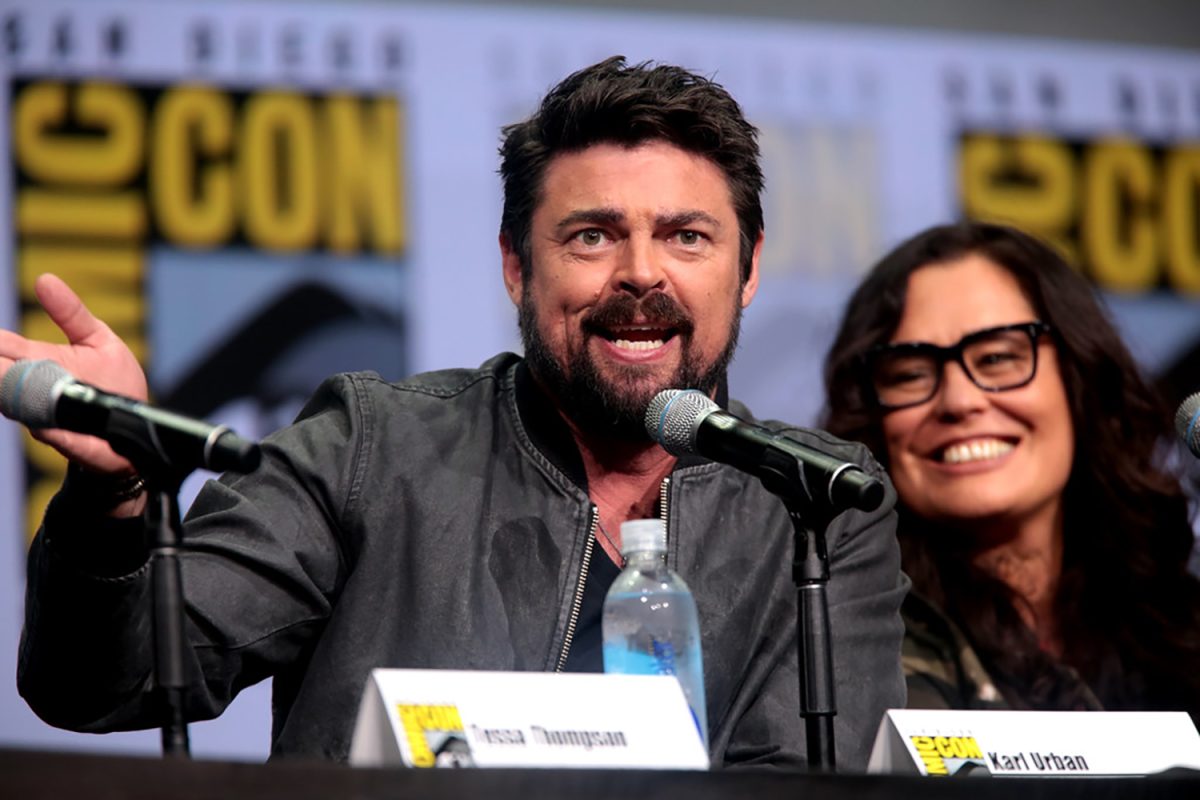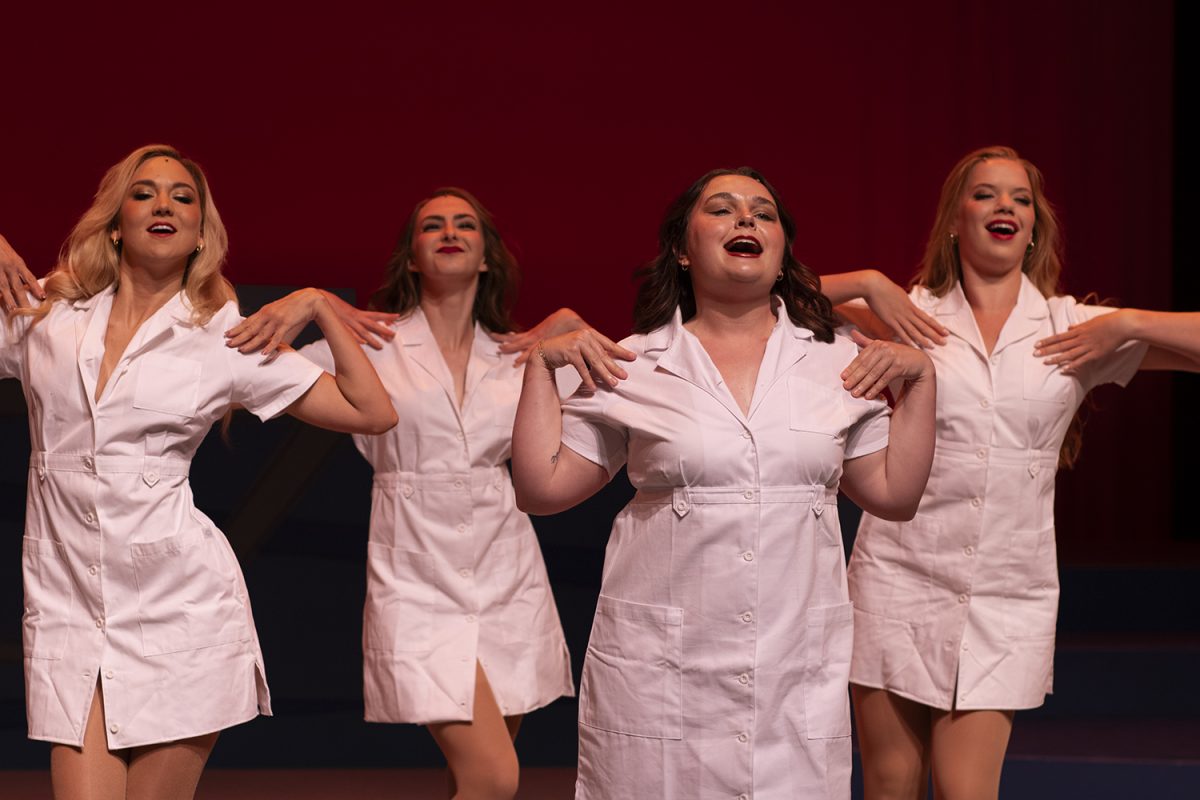"You know of them."
Maria Vorhis’ words, describing University of Iowa seniors Emily and Elizabeth Hinkler, ring true for countless students on campus. A slight woman with cropped short brown hair trudging around campus may not stand out too much, but when she is joined by a twin and performing on stage in front of hundreds, they attract some attention.
The Iowa City area at large will have a chance to see both Hinklers perform this weekend in Janet Schlapkohl’s new show, My Sister, at 8 p.m. Friday and Saturday in the 172 Theater Building.
"It’s a story of two sisters who have the same dream and about their journey to achieve that dream," Emily Hinkler said.
The scenario is fitting for the Hinkler sisters, given that both are majoring in theater and plan on continuing to pursue careers in acting after graduation in May. The question swirling around the pair all year has been will they go their separate ways to pursue their dreams next year?
"We are sticking together," Emily Hinkler said.
Not surprising, considering the two women are often together and could not complete this interview without completing each other’s sentences.
Elizabeth Hinkler shares her sister’s belief.
"It’s more marketable. We like each other," she said, smiling over at her sister in their dorm room. "We work really well together."
That just left the question of where to go.
"We are originally from Chicago, and we had intended to go there our whole lives, but we were talking to people, and they told us to go to LA," Elizabeth Hinkler said. "We just want to work, and we want to pursue our dreams. We want to attack it."
Before heading to the coast, Emily and Elizabeth Hinkler still have work left in Iowa City to complete, including My Sister, their first project of the semester. The show is a workshop production, meaning it is still in the process of being revised and altered.
"Because we’re seniors, we were trying to think of ways to incorporate our learning, so we made it into a workshop," Elizabeth Hinkler said. "This year’s theme is Human Rights Awareness, and this fit really well."
Vorhis, the project’s director, was also very enthusiastic about working on the original script.
"With a workshop, you’re not so tied up in the production — you can focus on the script," she said. "It’s much rawer. There’s a lot more freedom."
Stripping away much of the technical elements and focusing solely on the show’s message and content allowed for a deeper understanding of the work.
"It deals with 1934 Berlin, so it’s transitioning into the Holocaust," Elizabeth Hinkler said. "A lot of people know about the Jewish side of the Holocaust, but there was a time before that was about taking disabled individuals."
Elizabeth Hinkler is referring to the Nazi practice of executing those dealing with disabilities to "purify" the human gene pool. Her character, Matilde, has reason to worry, because she has cerebral palsy, and her twin sister, Magda, is perfectly healthy. Magda works in a cabaret performing things Matilde has written.
"Emily’s character, even though she is involved in the world, is very naïve about the world and very ignorant of what is going on, while on the other hand, my character challenges the world but is never actually confronted with it," Elizabeth Hinkler said. "I’m able to form my own opinions and fight against the world but only in private."
While having cerebral palsy seems like a huge aspect of Matilde’s character, Vorhis stresses that she never approached this show as a message piece. While she notes that Matilde’s disability is an aspect of the show, she does not feel it defines her or the show.
"[Matilde’s cerebral palsy] is this prominent factor that everyone else sees, but once you get past that, it’s a super minor factor," Elizabeth Hinkler said.
Though not defined by her disability, Matilde is somewhat physically limited by it and relies on Magda to care for her. The Hinklers were able to pull from their own lives — Elizabeth Hinkler heavily relied on Emily Hinkler for assistance after tearing her ACL during their sophomore year.
"It’s brought up a lot of our past when I tore my ACL and Emily was gone a lot," Elizabeth Hinkler said. "What do you do when you’re alone and how do you cope? In our relationship, we’re always there if we’re not together, in a way."
The two have been together for 21 years and joke about their birthday also being their anniversary.
"We’re always thinking about each other," Emily Hinkler said. "We describe our relationship to each other as like being married. Our relationship is like an old marriage without sex. If Elizabeth injures herself, I’ll take care of her, make her food, do her laundry."
Their own experiences with separation and reliance made connecting to their characters and deciding who was to play which character relatively simple.
"The experience I had of being alone, not being able to move, really connected me to [Matilde]," Elizabeth Hinkler said. "I feel like our relationship is like that, because Emily took care of me while I was not moving."
"I’m like my character because she always has something to do," Emily Hinkler said. "In the script, I have to take care of Matilde and be the breadwinner."
The parallels to real life did not end there. By their own standards, there are several personality traits that connect each to their characters.
"Magda is very logistical, like Emily is in real life, being in charge of everything," Elizabeth Hinkler said. "However, as with our relationship in real life, Matilde in the script is in charge in an entirely different way. I’m in charge of connecting on an emotional level. Magda is very naïve in an emotional way."
There are huge differences between the two characters, despite their nearly identical appearance. After 21 years together, Emily and Elizabeth Hinkler can relate to the experience of being viewed as the same person.
"People put twins up as a spectacle," Elizabeth Hinkler said. "When I look in the mirror, I see my own individual. It’s not like one is worse than the other or one is better than the other, which is how people always try to compare us. You are similar, but you can be valued as individuals for the great qualities you possess."
The sisters both hope audiences will have a better grasp on that concept after viewing the show.
"I think a great thing [audiences] can take away is a little bit of insight into what it’s like to be a twin, because people are always so curious about that," Emily Hinkler said. "I don’t think we can ever really explain it, because it’s normal to us."
Vorhis certainly noticed differences between the two women as the show progressed.
"They’re both incredibly smart, but Emily is more external, and Elizabeth is more internal," said the 2012 UI graduate. "They’re so on the same page it’s scary. It’s like Elizabeth is the Yin, and Emily is the Yang."
As Elizabeth and Emily Hinkler, two very different people, venture out into the world in the hopes of accomplishing the same goal, this script seems a perfect parallel to begin wrapping up their college careers.
"It’s just about two sisters trying to live the dream," Elizabeth Hinkler said. "Either meaning one of them stepping down so the other can pursue or trying to fit both of them through that skinny door.
What people do for each other when they love somebody — what that means about the pursuit of your dreams and how close your relationship is during such a trying time, even with twins who are so close.






